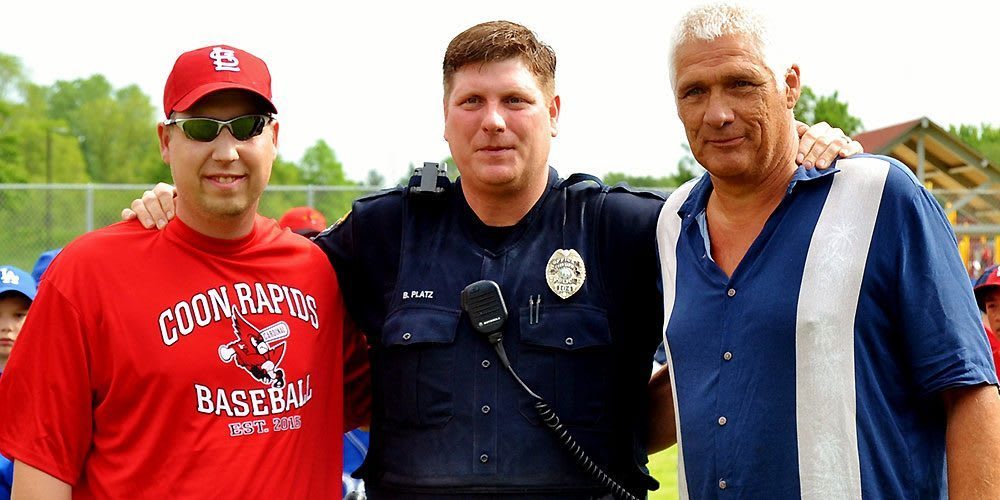
How a person responds to an emergency is unique to each situation. In the instant when Coon Rapids Cardinal Little League volunteer Ryan McCann watched his friend slump to the ground from a heart attack, he responded by performing a life-saving act.
Mr. McCann is a first-year Tee Ball Coach in the Coon Rapids (Minn.) Cardinal Little League (CRCLL), and had completed his league-required safety training course only weeks before his friend, Dennie Damman, suffered cardiac arrest during a local adult softball league game. As part of the CRCLL safety course taught by Coon Rapids City Police Officer Brian Platz, Founder and Director of Coon Rapids Chapter of Heart Safe, the league’s managers and coaches are instructed on how to properly execute compressions-only Cardiopulmonary Resuscitation (CPR).
“Without hesitation, Ryan started compression-only CPR,” said Scott Latta, CRCLL President. “About 10 minutes later, the paramedics arrived and shocked Denny four times, bringing him back from the dead. This save likely would not have happened if Coon Rapids Cardinal Little League wouldn’t have taken the time to make sure ALL of its coaches are properly trained!”
Mr. Damman is doing well today, and was cleared by doctors to resume playing softball after only a few weeks of rest.
“All of our coaches and Board members have been doing CPR and first-aid training for several years,” said Mr. Latta. “In Ryan’s case, this was his first year of training because he is a rookie coach. When I found out what he did, I was in awe that (in that moment) he knew what to do and was able to do it.”
Coon Rapids Cardinal Little League requires all its managers and coaches in the Tee Ball and Minor Divisions to complete the day-long training on an annual basis. Officer Platz teaches the CPR course, with other certified officials presenting first-aid, concussion recognition, and injury prevention training.
“This situation is an example of why every league should prepare their coaches and volunteers for health emergencies,” said Mike Norling, Minnesota District 1 Administrator. “And, it’s not just in life-and-death situations, but injuries, and when it gets hotter, heat-related problems. You never know when this training will come into play, and maybe save a life.”
Also communicated during the CRCLL safety training is education on where to locate, and how to operate, the Automated External Defibrillators (AED) stationed at each of league’s playing fields. Coaches and managers attending the training are also exposed to Little League’s rules and regulations, and provided guidance on how to safely oversee, operate, and coordinate practices and games.
“Conducting safety training is done in accordance with Little League rules and state laws, but the reality is it protects our children,” said Mr. Latta. “The expectation is that everyone, on each of our fields, can assess a situation, and is prepared to help. For Ryan to do what he did was both brave and heroic, and we will recognize what he did at this season’s league-wide Little League day.”